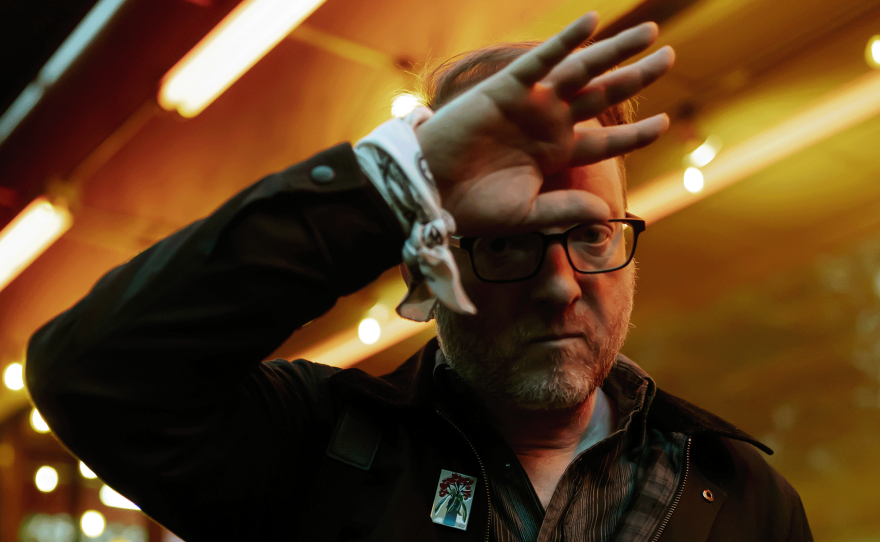Oregon-based musician Nick Jaina performs at Fisch Haus on Friday, Oct. 24.
Jaina, who is also an accomplished author, has been a regular visitor to the Commerce Street space for over a decade now. He is presently supporting his new album, “The Monster Mash,” which he discussed in detail during a recent visit to KMUW.
The following interview has been edited for length and clarity.
I assume that the title of the new album has a thematic significance.
For a long time, I resisted the title, which is “The Monster Mash,” because I thought, first of all, “Can I even do that? Is that a copyrighten thing?” It’s a song that exists. It just kept coming up as the perfect album title that was both kind of familiar but mysterious. I kind of enjoy the reaction from people. “Wait. What is that? Is this a Halloween album?” For me, it really meant something significant about any type of [situation] when everybody seems to be doing one thing that makes sense to them but it doesn’t make sense to you and keep trying to fit in with that and do that dance or whatever the thing is, and it doesn’t seem right to you and try to break away from that. Then there are consequences. It just seemed to be a metaphor representing that thing that happens, for a lot of people in society, of, “Why do I not like doing this thing that everyone seems to love doing?”
That process of finding one’s place … sometimes how we do that is we find that there’s a level of discomfort in one place and that’s what causes us to shift.
Yeah. Going through the battle of that discomfort means that I’m wrong or that I’m this freakish alien that’s uniquely alone in the world or there’s a gift here in this discomfort. The fact that I want to do a different dance, so to speak, is a power. I get the fortune at times of the spotlight being on me and people saying, “Oh, you do this different thing,” and they appreciate that. But that the shadow side of that are the many times when it feels like everything is awkward and [I wonder] why I can’t make more money or fit in at a party or something like that.
One of the things I love on this record is the sense of intimacy we get through the performances. Feeling very much like we’re in the space with you as these songs are unfolding. Can you talk a little bit about that approach to recording?
My girlfriend, Melody, who is sitting here as well, has a musical ear but is not a career musician. She had a certain perspective: I was making an album in the studio, and I was playing her these songs that she knows. She’d say, “That’s good. It doesn’t really sound like you though.” I said, “What do you mean? That’s me.” She was identifying something that was just soundwaves. It wasn’t a technical thing, it was something in what you’re talking about: The intimacy, the heart. We basically redid the whole album in my bedroom with her sitting there and giving the emotional feedback. Smiles or indifference as a signal of, “Are you connecting with the heart space? Are you connecting with what the original meaning of the song is?” Which is a unique experience a lot of musicians don’t get to have.
Like, in this studio here, everything gets turned into “Are the levels good? Is it technically good? What do the soundwaves look like?” It can be easy to get into that space and forget that you’re a human being representing emotions, connecting to something real. I think for all of us, however we respond to that, there has to be a moment of grounding and [asking], “What am I here to do? I’m not just a robot making the levels look good. I’m here to communicate something emotional.”
So, the recording process ultimately reflects the themes.
Exactly. It doesn’t make sense. Usually, you make demos in your bedroom, and you go into the studio to make them sound better. I recorded them in the studio, and then I re-did them at home in a demo way. Letting go of that fear of, “But I’ve invested all this time and money in the ‘proper’ space to record, am I going to just redo this at home?” In this case, and I’m not saying it always works, but in this case, it allowed me to reconnect with that thing. We would light candles, turn the lights off and make that mood. It really is important. Especially with music.


